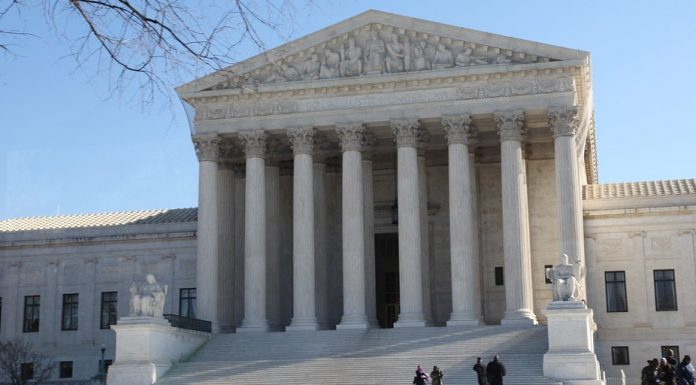The Supreme Court has agreed to hear Cedar Point Nursery v. Hassid, a case that challenges a California law which grants union organizers permission to enter the property of agricultural businesses, Jurist reported.
California’s owners of agricultural properties and businesses do not have the right to refuse entrance to employee unions, leading the Pacific Legal Foundation to characterize the law as granting a right to “trespass on private property,” according to a press release.
Cedar Point Nursery argues in the case that California law lets union organizers disturb agricultural business, which leads to a loss of property and thus constitutes an illegal seizure without fair compensation.
This arrangement violates the Fifth Amendment’s taking clause, which states: “Nor shall private property be taken for public use, without just compensation.”
This law harmed Cedar Point Nursery in 2015, when union organizers rushed onto the property, “yelling into bullhorns and demanding that the workers join the union.”
The workers were taken from their tasks and the business owner, Mike Fahner, could not demand that they leave.
“The Constitution forbids government from requiring you to allow unwanted strangers onto your property. And union activists are no exception,” said Joshua Thompson, a senior attorney at Pacific Legal Foundation. “California’s regulation that allows them to do so violates property owners’ fundamental right to exclude trespassers.”
The US Court of Appeals for the Ninth Circuit ruled against agricultural businesses with the argument that California law prescribes certain times for union organizers to solicit support.
California’s regulations allow union organizers unfettered access to agricultural businesses for 3 hours a day, 120 days a year.
During these 360 hours of work time, union organizers may demand to meet with agricultural employees in order to persuade them to join unions.
This time limit on solicitation to the equivalent of 9 working-weeks per year means that the agricultural businesses have not unjustly lost their property rights, the court argued.
Victoria Hassid, chair of the California Agricultural Labor Relations Board, made a similar argument in a brief that defends California law.
She said there are regulations in place to protect business owners.
Union organizers must tell business owners when they plan to come, and they are restricted to certain hours.
Hassid, arguing along similar lines as the Ninth Circuit, found that the regulations restrict unions, not the right of businesses to operate without interruption.
She said that agricultural businesses have not been able to demonstrate that the law has monetarily harmed them.
Hassid also asserts that union organizers did not abuse the system in 2015, when they visited only 62 out of 16,000 agricultural businesses to solicit workers to join their unions.
The plaintiffs said that the argument about the extent of the visits does not invalidate their rights, especially since “there is no reason to think that stampedes of third-party organizers will not return” whenever they want.
The Cato Institute, in a brief filed for the plaintiffs, argued that the rights of agricultural owners cannot be curtailed without a risk to the tenet of private property.
“When a fundamental attribute of ownership is involved, the ‘extent of the occupation’ is anything or nothing,” the Cato Institute wrote. “If the owner loses his power to exclude others for even a moment, in that moment he has lost the power completely.”
PLF filed a petition for a writ of certiorari this July, SCOTUSblog reported.
PLF also represents Fowler Packing Company in the lawsuit.

